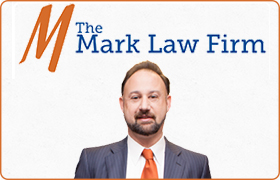 Scotch Plains Criminal Lawyers, New Jersey
Scotch Plains Criminal Lawyers, New Jersey
Sponsored Law Firm
-
 x
x

Click For More Info:
-
Mark Law Firm
675 Morris Avenue, Suite 102 Springfield, New Jersey 07081 » view mapCar Accident Call Now For A Free Initial Consultation
Life changes drastically in the aftermath of a serious accident or injury. Emotional and financial ramifications can also be extensive.
800-736-9780  Jamison Mark Basking Ridge, NJ
Jamison Mark Basking Ridge, NJAttorney At Law - NJ, 2000
Widener University SOL, J.D. - 1999
 Overview
OverviewMark Law Firm is a full-service firm representing the interests of its clients.
 Testimonials
Testimonials"He is certainly one to go to the limit for his clients and his friends."
Sponsored Lawyers
1-10 of 21 matches
Accident & Injury, Personal Injury, Criminal
Howard Lesnik is certified as a trial attorney by the New Jersey Supreme Court. The New Jersey Supreme Court has certified Howard Lesnik as a board certified trial attorney. Only 2% of the 75,000 registered NJ lawyers meet the stringent standards of experience, education, and knowledge, to be recognized and achieve board certification by the Supreme Court of New Jersey. Have questions? Need answers about an injury that occurred in New Jersey as a result of someone else’s negligence, or need to consult a criminal defense attorney in Mountainside NJ? Call Howard Lesnik at 908.264.7701 or email Mr. Lesnik at howard@lesniklaw.com. Mr. Lesnik is a Certified Trial Lawyer in New Jersey who brings his experience and knowledge of the laws of New Jersey to protect you and your family. Allow yourself time to heal from your injuries while your attorney handles the insurance company, and other legal matters concerning any exposure to criminal charges.
(more)





